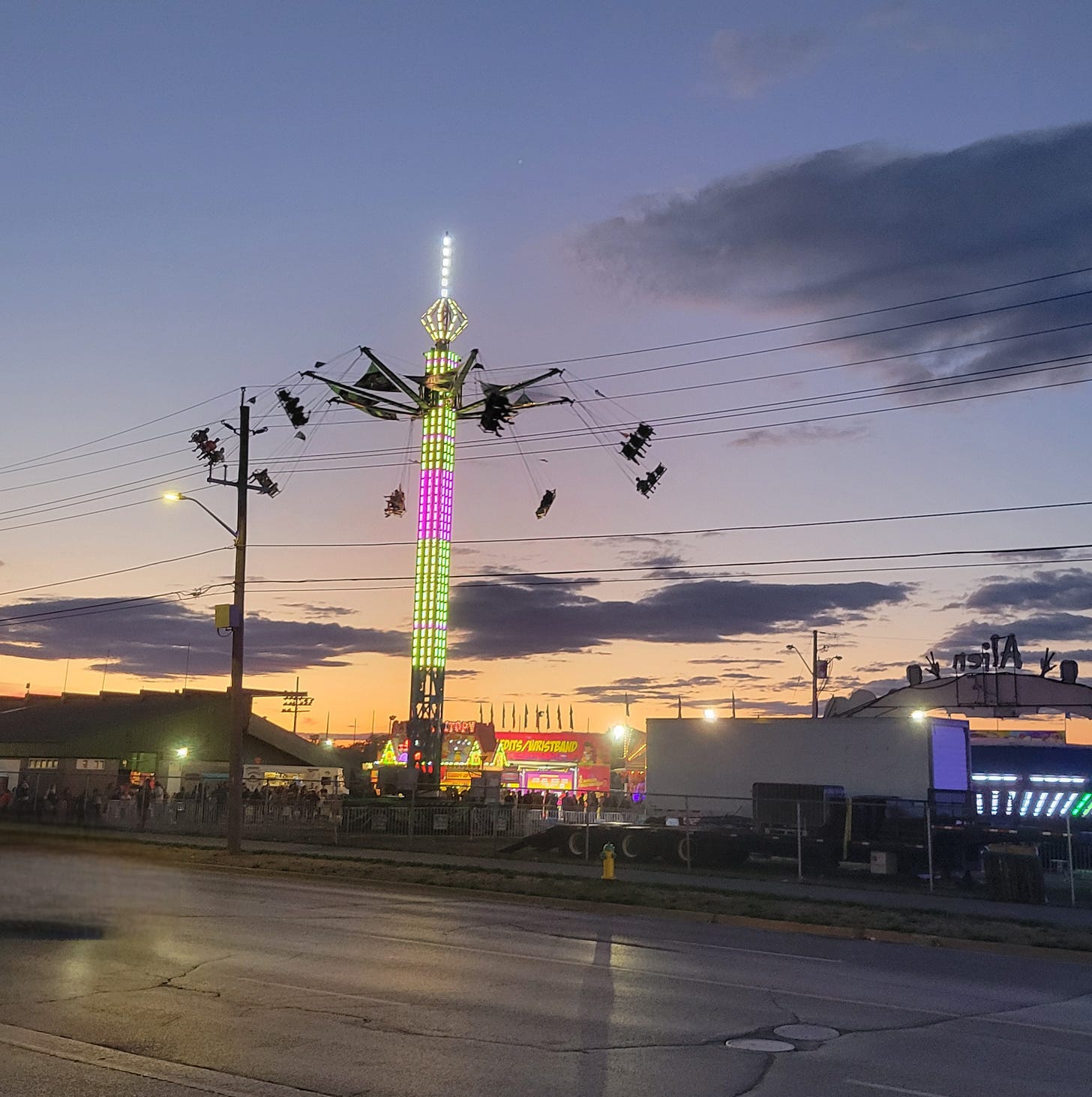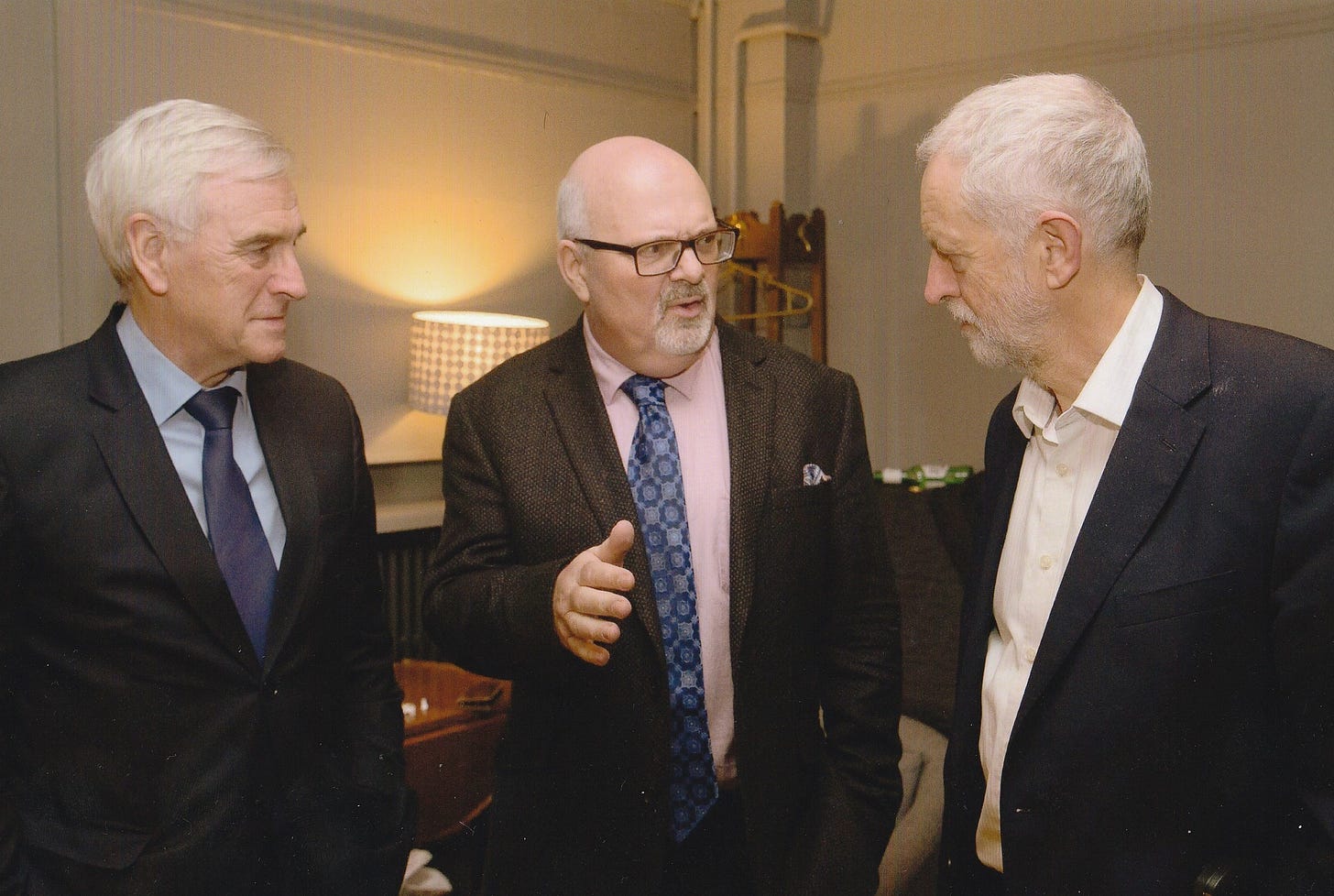I went to bed with Summer and woke this morning with September beside me. That stings—like when the penny drops and you know irrevocably a love affair is over. You can’t go back and fix it, because the moment is past, and you’re watching it recede from the rear window of a fast-moving car.
Life has no reverse gear. Forward, forward, forward.
Summer hardly felt present this year.
I longed for its return all through last winter’s brutality. But when it came, the air was smoky and poisonous from wildfires burning out of control across the country. The heat was relentless under unmoving humidity domes, and here it didn’t rain for sixty-five days. The trees began shedding leaves trying to survive the dry earth. The poor do that too, when they pawn their possessions in the hope of surviving neoliberalism’s cost-of-living crisis.
There were days when I found fragments of past summers—in the look of the sky, or the way sunlight stroked calm water in the nearby bay. On those days, I wondered, because I am 61 and living in dangerous times, how many summers are left to me—or to any of us?
Last night, on the brown field a block north of my apartment, the town’s end-of-summer fair was torn down after its Labour Day weekend run. Ephemeral as August, gone in a breath.
Now silence loiters on the field where, for seventy-two hours, something like collective joy reigned.
Sure, it was a diversion, but it is a traditional diversion for this town, like the Santa Claus Parade. The fair is ancient. It has existed since the days when young men prepared to battle the Kaiser in 1914 and Hitler in 1939.
For over a hundred years, the sound of roller coaster riders’ screams refreshed the night air with youthful optimism. On the weekend, while standing near the entrance, it buoyed my spirits to hear the shouts and cries of people enjoying their Saturday night. To their merriment, I looked up at a sky blazing with kitschy lights from the swing carousel. Standing rock like, teenagers—drunk, high, or sober—drinking to the lees the last of their summer holidays swirled past me.
That night, crisp with autumn around the corner, should have been the same old ritual, that capitalism’s has provided as distraction, from our woes for generations. But everything is shifting now and so it felt mournful. Genocide rages, homelessness claws at polite society, fascism struts openly in daylight. You can bury your head so far in the sand that only your feet are showing, but autumn and winter will still be bloody for us.
The speed, on Sunday, at which the carnies stripped the rides reminded me of time-lapse photography for a science program. The ones where you watch road kill vanish beneath insects in 30 seconds. Or like the Welfare State, devoured by hedge funds and asset management corporations who are capitalism’s maggots. All is gone in the blink of an eye.
Thanks for reading and supporting my Substack. Your subscriptions keep me housed and allow me to continue preserving Harry Leslie Smith’s legacy. Thanks to you, I made September’s rent—though only just. The cost-of-living crisis has worsened, and it’s understandable that many have had to cancel paid subscriptions. Times are hard.
Still, I need to extend my push for tips or new subscribers, because I’ve got to eat and pay for medicine. August and September are always the leanest months for me, but everything should stabilise by next week.
On brighter news: The Green & Pleasant Land, after 18 months of work, is now complete in beta format. It will go to a publisher this month, and I’m confident it will find a home in print. My father’s story, like that of his working-class generation, must be remembered if we are to resist today’s fascists. If you’d like a beta e-copy, let me know.
If you can, please consider supporting with a paid subscription—just £3.50 a month or £30 a year (converted into your currency). I’ve reduced the yearly price by 20% to make it easier, and a yearly subscription alone covers much of my essential expenses. There’s also a tip jar for anyone who feels inclined.
Apologies for the cap-in-hand appeal, but these are needs-must times.
Take care,
John



i love the way your writing is so evocative and down to earth, i particularly liked "You can bury your head so far in the sand that only your feet are showing, but autumn and winter will still be bloody for us" so many seem to feel that is the only way to maintain an appearance of normality, it reminds me of closing my eyes as a child in the belief that became invisible.
good luck with the publishers.